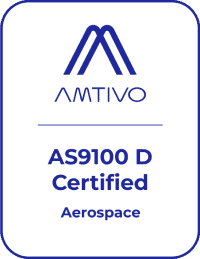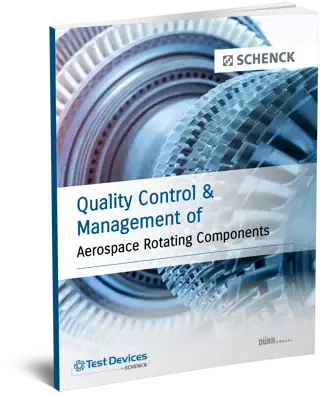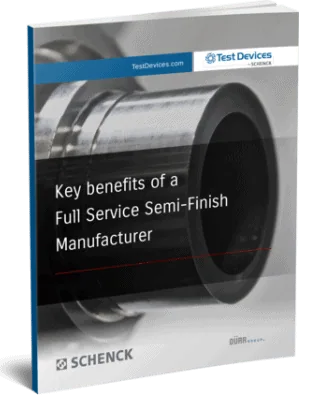Test Devices by SCHENCK offers various services for our customers to outsource a part of their work for production of rotating parts, including proof/overspeed testing, pre-spinning and machining of jet engine forgings.
In any production operation efficiency and timely delivery is a key agenda. At Test Devices, we offer convenient “one-stop-shop” services to meet your requirements, which includes comprehensive engineering services to design and manufacture the spin toolings, quality controlled processes, performing CMM inspections and preparing necessary quality documentations that integrate seamlessly to support your production flow.
Our facility is compatible with handling and processing thousands of different types of rotating parts, including those with complex geometries. Most importantly, our team with the expertise drawn from over decades of experience in performing high-volume, quality controlled production operations are well equipped to address and resolve any in-operational issues without causing an interruption to your production flow.
We conduct our operation in compliance with AS9100 aerospace quality standards, which means that you can have full confidence in the integrity and traceability of our work. We have been a trusted partner in serving our customers in aerospace, automotive and broader industry sectors.
Learn more about our services and how we can support your production needs.
Our Services
At Test Devices by SCHENCK, we offer spin testing services and CNC machining services related to the production of high speed rotating parts: Proof / Overspeed spin testing, Pre-spin services, and CNC machining services for jet engine forgings.








